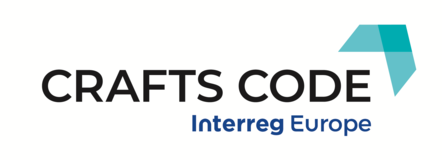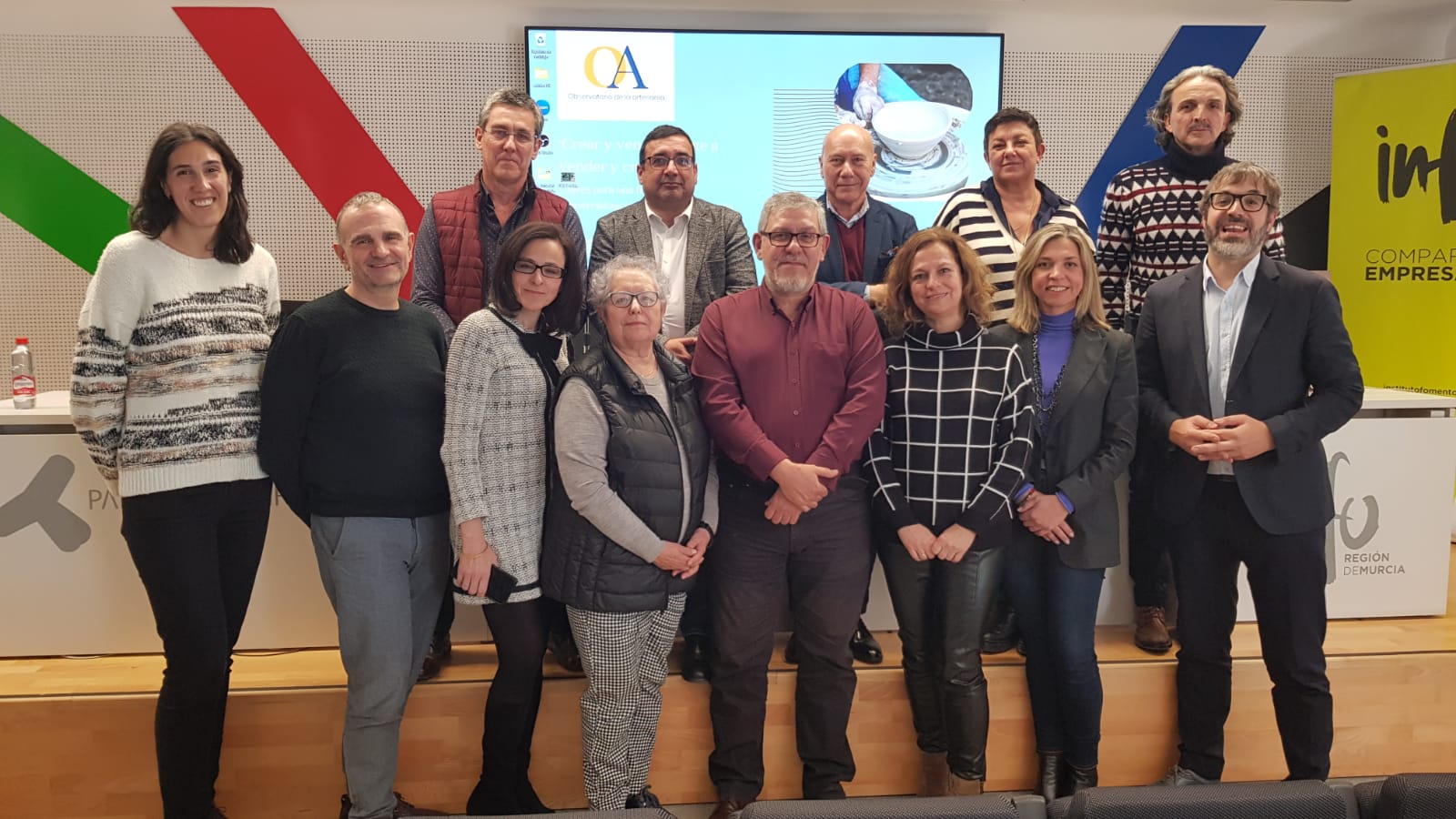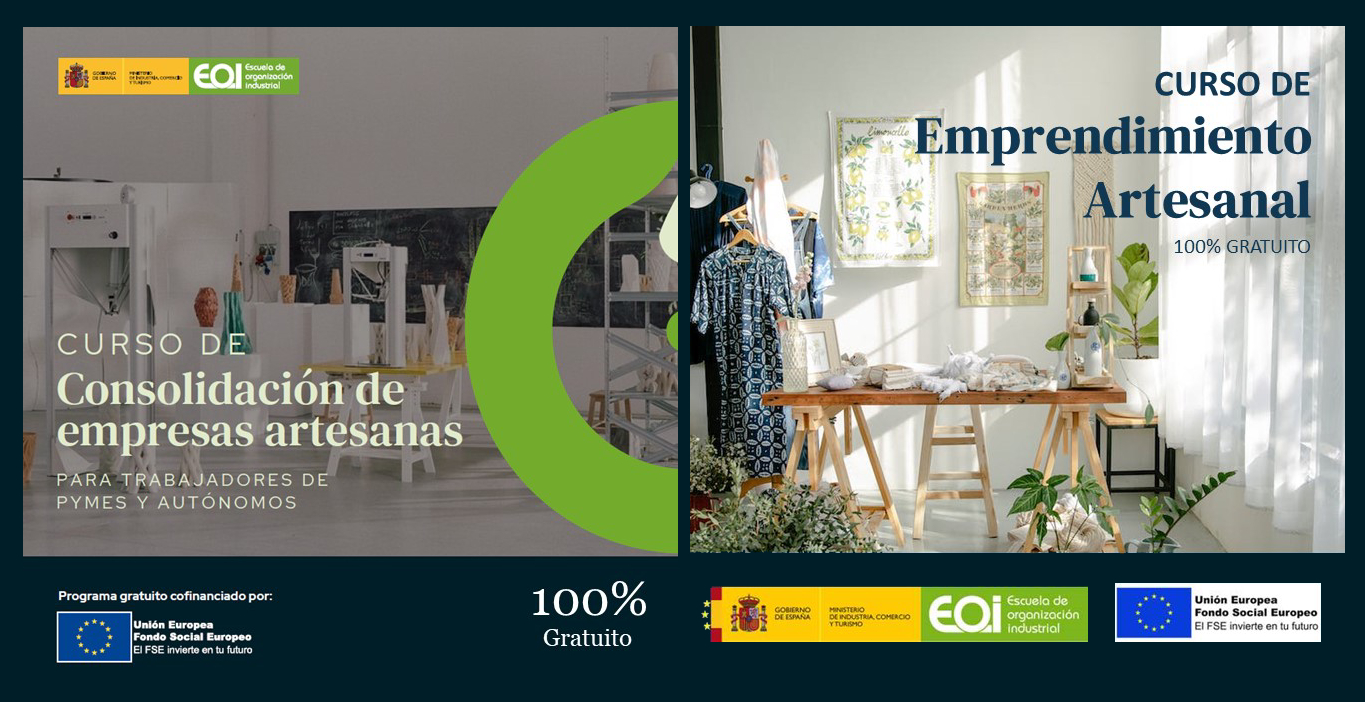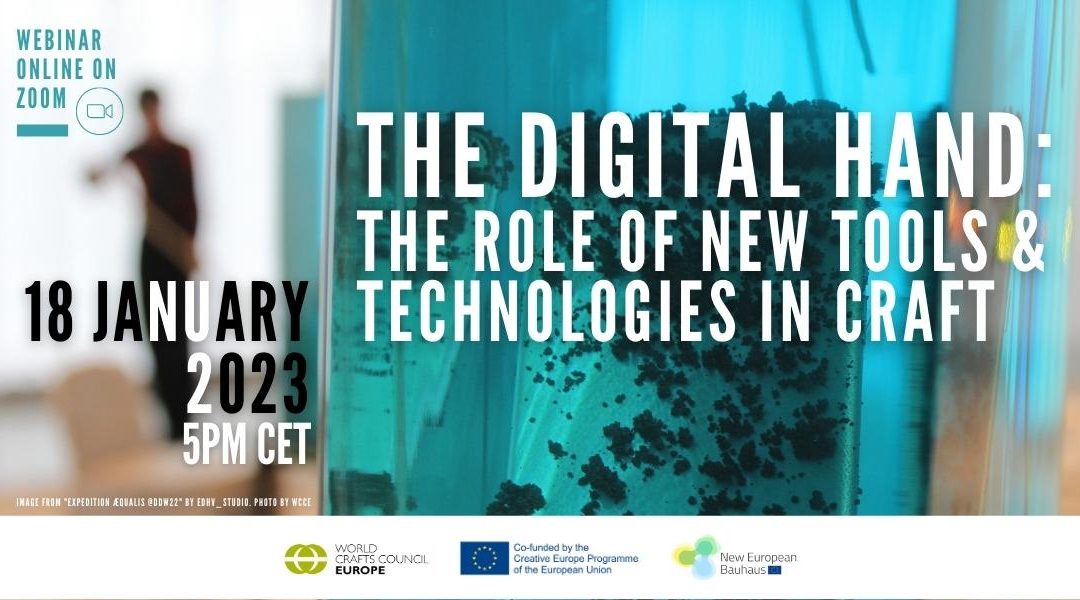WCC-Europe presents the second webinar in the framework of the New European Bauhaus (NEB) online conference series. The topic of this edition is digitalisation and the use of digital technologies and is free and open for all to attend. Join via Zoom on Wednesday 18th of January at 17:00 (CET). Read all the details and full programme of speakers here:
wcc-europe.org/whats-on/news/new-european-bauhaus-webinar-the-digital-hand-the-role-of-new-tools-technologies-in-craft/
As a network organisation, World Crafts Council Europe aims to strengthen the status of crafts as a vital part of cultural, social and economic life, promoting a sense of fellowship among the global and European craft community.
The webinar’s focus will look at its impact of digitalisation on innovation, which is placed at the highest rank among the current sectoral challenges. Within this, the programme intends to engage questions around digital skills and their relationship to craft practice; the digital transformation and acceleration; as well as the role digital technologies play in transitioning toward a more sustainable sector and society. It will be the second webinar in the New European Bauhaus (NEB) programme, implemented within the framework of the “Crafting the Future” project (Creative Europe Programme).
The key speaker of the webinar will be Alessandro Monti from The Foundation Research and Innovation of the University of Florence with an introduction from Mariachiara Esposito, Seconded National Expert at Cultural Policy Unit (DG EAC), European Commission; and presentations from Distributed Design & FabLab Barcelona; progressive design and craft studio, Gareth Neal and innovative jewellery maker, Edu Tarin.
The webinar is fully aligned with the Strategy for Europe – ‘Fit for the Digital Age’, to make digital transformation/acceleration work for people and businesses while helping to achieve its target of a climate-neutral Europe by 2050. It will contribute to the Digital Education Action Plan and resetting education and training for the digital age objectives by enhancing digital skills and competences for the digital transformation.











